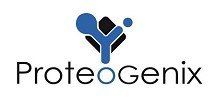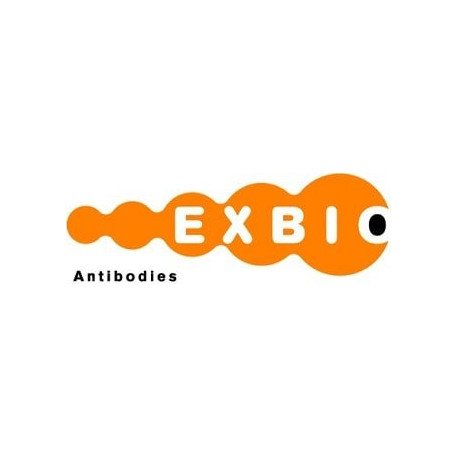Cart 0 Product Products (empty)
No products
To be determined Shipping
0,00 € Total
Prices are tax excluded
Product successfully added to your shopping cart
Quantity
Total
There are 0 items in your cart. There is 1 item in your cart.
Total products (tax excl.)
Total shipping (tax excl.) To be determined
Total (tax excl.)
Data sheet of Rat Monoclonal to CD105 (mouse)
| Brand | Exbio |
| Product type | Primary antibodies |
| Reactivity | Mouse |
| Clonality | Monoclonal |
More info about Rat Monoclonal to CD105 (mouse)
| Brand: | Exbio |
| Product no.: | 11-714-C025 |
| Product type: | Primary antibodies |
| Host species: | Rat |
| Product name: | Rat Monoclonal to CD105 (mouse) |
| Antigen: | CD105 (mouse) |
| Clonality: | Monoclonal |
| Clone: | MJ7/18 |
| Isotype: | IgG2a |
| Immunogen: | Inflamed mouse skin |
| Format: | purified |
| Specificity: | The rat monoclonal antibody MJ7/18 reacts with CD105 (Endoglin), a 90 kDa type I homodimerizing membrane glycoprotein expressed on vascular endothelial cells (small and large vessels), activated monocytes and tissue macrophages, stromal cells of certain tissues including bone marrow, pre-B lymphocytes in fetal marrow and erythroid precursors in fetal and adult bone marrow. |
| Categories: | CD and Related Antigens & MHC (Rodent) |
| Concentration: | 1 mg/ml |
| Storage buffer: | Phosphate buffered saline (PBS) with 15 mM sodium azide, approx. pH 7.4 |
| Storage / stability: | Store at 2-8°C. Do not freeze. Do not use after expiration date stamped on vial label. |
| Background: | CD105 (Endoglin) is a homodimeric transmembrane glycoprotein serving in presence of TGFbetaR-2 as a receptor for TGFbeta-1 and TGFbeta-3. CD105 is highly expressed on endothelial cells and promotes angiogenesis during wound healing, infarcts and in a wide range of tumours and its gene expression is stimulated by hypoxia. CD105 prevents apoptosis in hypoxic endothelial cells and also antagonises the inhibitory effects of TGFbeta-1 on vascular endothelial cell growth and migration. Normal cellular levels of CD105 are required for formation of new blood vessels. |
| Purity: | > 95% (by SDS-PAGE) |
| Purification: | Purified by protein-G affinity chromatography |
| Product specific references: | *Ge AZ, Butcher EC: Cloning and expression of a cDNA encoding mouse endoglin, an endothelial cell TGF-beta ligand. Gene. 1994 Jan 28;138(1-2):201-6. , *Dassler K, Roohi F, Lohrke J, Ide A, Remmele S, Hütter J, Pietsch H, Pison U, Schütz G: Current limitations of molecular magnetic resonance imaging for tumors as evaluated with high-relaxivity CD105-specific iron oxide nanoparticles. Invest Radiol. 2012 Jul;47(7):383-91, *Herouet C, Cottin M, LeClaire J, Enk A, Rousset F: Contact sensitizers specifically increase MHC class II expression on murine immature dendritic cells. In Vitr Mol Toxicol. 2000 Summer;13(2):113-23., *Fonsatti E, Nicolay HJ, Altomonte M, Covre A, Maio M: Targeting cancer vasculature via endoglin/CD105: a novel antibody-based diagnostic and therapeutic strategy in solid tumours. Cardiovasc Res. 2010 Apr 1;86(1):12-9. doi: 10.1093/cvr/cvp332., *Warrington K, Hillarby MC, Li C, Letarte M, Kumar S: Functional role of CD105 in TGF-beta1 signalling in murine and human endothelial cells. Anticancer Res. 2005 May-Jun;25(3B):1851-64., *Cho SK, Bourdeau A, Letarte M, Zúñiga-Pflücker JC: Expression and function of CD105 during the onset of hematopoiesis from Flk1(+) precursors. Blood. 2001 Dec 15;98(13):3635-42., *Rosu-Myles M, She YM, Fair J, Muradia G, Mehic J, Menendez P, Prasad SS, Cyr TD: Identification of a candidate proteomic signature to discriminate multipotent and non-multipotent stromal cells. PLoS One. 2012;7(6):e38954. doi: 10.1371/journal.pone.0038954. |
| Related products: | - Rat Monoclonal to CD132 - Rat Monoclonal to CD11a (mouse) / LFA-1 alpha chain - Rat Monoclonal to CD11b (mouse) / Mac-1 alpha |
| Shipping condition: | Room temperature |


